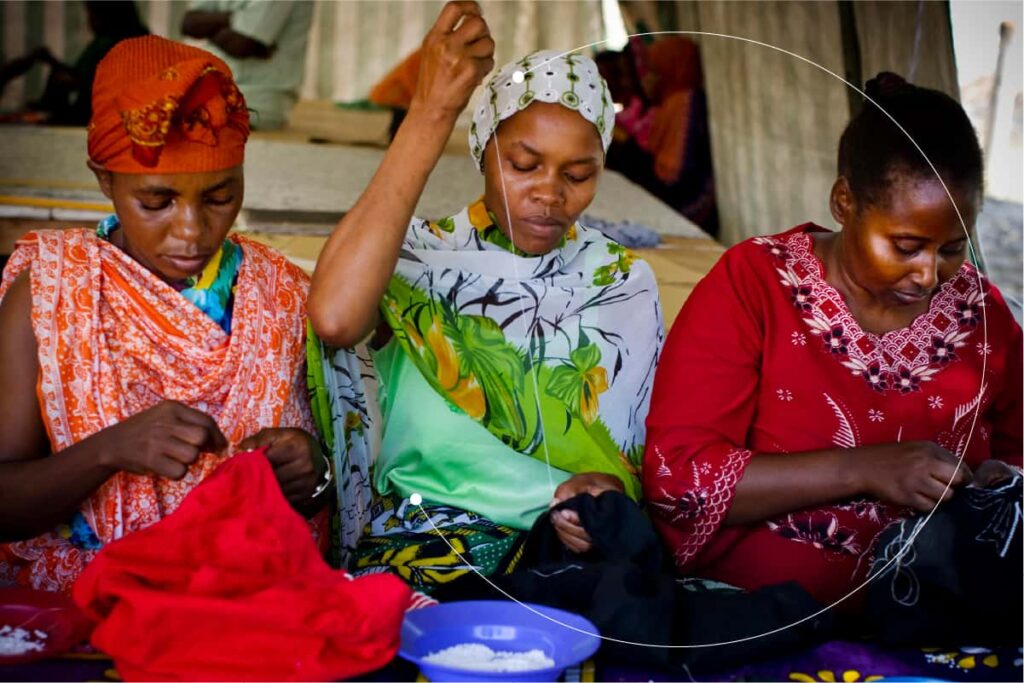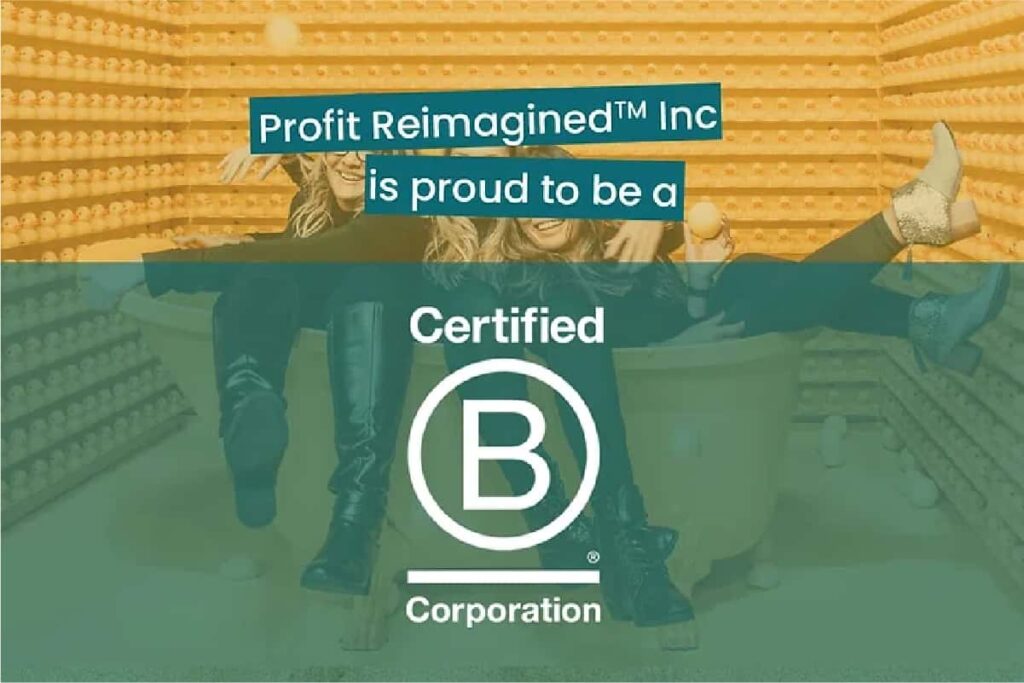At the heart of every successful venture, you’ll find a dedicated team of individuals who share a common dream. They are the lifeblood, the driving force behind a company’s success and profitability. As a committed and ethical organization, SOKO Kenya goes above and beyond to ensure their team members are rewarded justly with a fair wage, comprehensive healthcare, and additional benefits that reflect their invaluable contribution.
But what happens when these hardworking individuals complete their journey with a company? How can organizations continue to honor their legacy and impact within the company?
These are some of the questions that Joanna Maiden addressed when she established SOKO Kenya. This fashion manufacturing company began in a single shed with just four employees and has since grown to employ over a hundred people.
In the third episode of our Living Wage Series, Joanna Maiden takes us on her journey from being a student passionate about social justice to becoming a change-maker. She shares her experiences in Kenya, where she established a fashion factory that, unlike many others in her industry, prioritizes ethical labour and environmental practices. She didn’t just care for her employees during their time at SOKO Kenya— she also made sure that their financial well-being remained secure even after they left the company.
People should not be viewed solely as profit generators and then discarded when they are no longer needed. Tune in to discover how you can join a movement to become ethical employers and make a lasting impact.
The Effect of a Teacher: Joanna’s CEO Journey
Today, Joanna Maiden is the CEO of SOKO Kenya. But no one starts their journey at the end — and Joanna’s path begins with a teacher.
Joanna had always been acutely aware of economic inequality. She could see these disparities in her own upbringing. In her own words, “I also felt social justice was just very much at my core from a very young age and seeing the kind of gap between how I was raised, the family I was born into and what a lot of young people at a similar age to me, growing up what their life looked like.”
However, her passion for social and economic justice truly ignited at the age of 16 when she began studying fashion, textiles, and economics. During that time, she had an economics teacher who was ahead of their time. This teacher imparted valuable insights about the inequalities that persist in the world today.
Following her studies, Joanna worked with small brands aiming for sustainability and supply chain transparency. Despite these brands’ noble intentions, they struggled to find manufacturers for their clothing.
This challenge led Joanna to Kenya on a work trip, where she got the idea to establish a factory with a difference. She envisioned a factory that would prioritize transparency and leverage the fashion industry to achieve two vital goals: improving the quality of life for employees and promoting environmental sustainability.
All of this happened 14 years ago, and since then, SOKO Kenya has only continued to grow and thrive!
What SOKO Kenya Provides
SOKO Kenya has always planned to do good for its people. Today, they provide:
- Living wages
- Medical coverage
- Free childcare
- Meal coverage
- Promotion structure
- Training and development
- Life skills training
- Pension
But even with all that, Joanna realized they could do even more. There were still gaps, and SOKO Kenya rose to fill them. Today, they also run two charity projects on top of ensuring that their employees have a high quality of life.
The Stitching Academy teaches people the skills they require to be better placed to secure a job in clothing manufacturing. Meanwhile, the Kujuwa Initiative is committed to end period stigma, normalize menstruation and give girls and menstruators the equal opportunities they deserve.
The community Joanna worked in had unfortunately fostered substantial gender disparities. Joanna herself pointed out, “A million girls miss school every month due to lack of sanitary products, and also lack of information understanding about their bodies.”
Transparency in the Fashion Industry
One thing that Joanna had noticed at a young age was the stark difference in transparency across various industries. She couldn’t help but wonder why tea and chocolate had documentaries shedding light on their supply chains, but fashion didn’t receive the same scrutiny. Her academic dissertation delved into the stories behind clothing, but she aspired to take more meaningful action. Her guiding principle was simple yet profound: “There’s so much that needs to be done to improve it. And for me, what I’ve always been passionate about is what can we do, let’s focus on what we can do.”
Joanna focussed on two key areas regarding transparency in fashion: labour and the environment. The working conditions in the fashion industry can be punishing and unethical. Some of the problems Joanna wanted to address are:
- Extensive overtime
- Withheld salaries
- Unsafe working conditions
- Unattainable production targets
Conversely, environmental challenges are equally numerous and detrimental to our planet. They aren’t limited to the source either — many of the environmental issues in the fashion industry involve what happens after the clothing is manufactured and sold:
- Waste and wastewater management
- Factory conditions that harm the environment
- Disposable fashion culture
- Wasteful fashion practices
Limiting Consumption — The How and the Why
In today’s fashion landscape, there’s a prevalent pattern: fast fashion. It’s characterized by inexpensive clothing that chases trends but lacks durability. Trends come and go so swiftly that consumers often replace new clothes, discarding the old ones.
This disposable clothing culture places an immense burden on the environment as it leads to a surge in discarded garments. Joanna’s hope for limiting consumption is that people purchase things they love and wear repeatedly rather than use them once then throw them away. She articulates it as follows: “So I think in terms of us as consumers, and as women who love clothes, how can we think about it in a more creative way that isn’t about buying something new, that’s a kind of frivolous purchase?”
Addressing Labour Issues in the Fashion Industry
A significant challenge in the fashion industry is the prevalent exploitation of labour. Many manufacturers, particularly those outsourcing production to third-world countries, often engage in exploitative practices at the expense of local workers. While these businesses do create jobs, they frequently offer only minimal wages, taking advantage of the desperation of the local workforce.
Joanna, however, envisions a different path: “My hope is that this could be a model of how to do it differently and how to do it in a better way that’s responsible.”
Building Community Trust Through Collaborative Leadership
Rather than take a top-down, traditional approach, Joanna chose a collaborative leadership style. In doing so, she recognized that many of the individuals she worked with had seldom experienced a work environment where their voices truly mattered.
Joanna’s collaborative approach meant that, despite her senior position, employees had a say in shaping company practices. Together, they worked on defining how the company would conduct itself.
How to Be an Ethical Employer
The concept of being an ethical employer has evolved beyond simply paying a living wage. As we continue to examine how we run our businesses, the definition of ‘ethical employer’ evolves. Joanna puts it succinctly: “An ethical employer would be someone who would support someone after they’ve left.”
Today, being an ethical employer means addressing the challenges your employees might not be ready to face. Those concerns will vary from location to location. In Joanna’s case, she had to address things like:
- Employee healthcare
- Financial literacy
- Healthcare literacy
- Lack of stable pensions
Riding Out a Storm — Together
Being an ethical employer entails caring for your employees both during their time with your company and beyond. But what happens when the company itself faces adversity?
In 2021, SOKO Kenya faced a huge problem: their biggest client was going to pull their business out. That meant a painful hit to their business because so much of their production went to this client. But rather than let go of workers to cut business costs, Joanna came up with a different strategy.
SOKO Kenya decided to redirect its financial resources into employee pensions, ensuring the financial stability of all their employees while keeping the company afloat. Although this approach may have seemed unconventional at the time, it ultimately proved successful.
Continued Support for Workers
Ensuring the well-being of our workers includes providing them with pensions. At SOKO Kenya, they are committed to allocating 4% of every employee’s monthly salary indefinitely, as long as the company’s financial circumstances allow.
Here are the steps they took to establish a compassionate and ethical pension scheme for their employees:
- Local Research: Joanna conducted extensive research on available pension options in the local area. She explored existing private pension funds and assessed their contribution levels.
- Estimation: SOKO Kenya then carefully calculated the most suitable contribution percentage based on the company’s financial capacity. They deliberated whether 1% would suffice or if a higher percentage was feasible.
- Timing Matters: In light of the unique challenges faced in 2022, the company had to strategically plan their financial commitment to pensions.
It’s important to note that pensions are not the sole means of supporting employees. Some governments offer incentives to companies that provide additional support, such as childcare or healthcare benefits. As Joanna emphasizes, “I think it’s just looking at where there are challenges for employees and where you could fill the gap.”
Learn More About the Episode Highlight Guests
Joanna Maiden is the CEO and founder of SOKO Kenya, a clothing factory in Kenya that prioritizes ethical labour and environment practices. She also started two charity projects to help address the poverty and lack of education in Kenya.
You can learn more about Joanna and SOKO Kenya through their website.
Follow SOKO Kenya’s social media accounts on Facebook, Instagram, and LinkedIn. You can purchase their jewelry products through their online store.
Connect with Joanna through LinkedIn.
Profit is a tool every business needs to succeed. No matter how noble your mission is, managing your finances is crucial to ensuring your company thrives and grows in the face of financial adversity. At The Profit Reimagined™, we do more than just provide generic virtual CFO services. We aim to understand your mission and vision so that we can devise financial strategies that suit your company’s goals. What kind of impact do you want to make? Who are you aiming to help?
If you want to grow your team to ensure that your company serves its purpose beyond profit, a CFO can help you figure out your next best move. Schedule a discovery call with Profit Reimagined™ to help you cover your foundations and deepen your understanding of these concepts.






